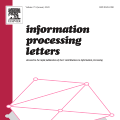Proof-theoretic semantics (P-tS) is the paradigm of semantics in which meaning in logic is based on proof (as opposed to truth). A particular instance of P-tS for intuitionistic propositional logic (IPL) is its base-extension semantics (B-eS). This semantics is given by a relation called support, explaining the meaning of the logical constants, which is parameterized by systems of rules called bases that provide the semantics of atomic propositions. In this paper, we interpret bases as collections of definite formulae and use the operational view of the latter as provided by uniform proof-search -- the proof-theoretic foundation of logic programming (LP) -- to establish the completeness of IPL for the B-eS. This perspective allows negation, a subtle issue in P-tS, to be understood in terms of the negation-as-failure protocol in LP. Specifically, while the denial of a proposition is traditionally understood as the assertion of its negation, in B-eS we may understand the denial of a proposition as the failure to find a proof of it. In this way, assertion and denial are both prime concepts in P-tS.
翻译:明确公式,否定作为失败,和直觉命题逻辑的基扩展语义
证明论语义(P-tS)是语义学范例,其中逻辑中的意义基于证明(而非真实性)。 P-tS的特定实例是其基扩展语义(B-eS)的直觉命题逻辑(IPL)。此语义由一个称为支持的关系给出,解释了逻辑常量的含义,其由称为基础的规则系统参数化,这些规则系统提供原子命题的语义。在本文中,我们将基础解释为明确公式的集合,并使用后者在统一证明搜索下提供的操作视图(即逻辑编程(LP)的证明论基础)以建立对B-eS的IPL完备性。这个视角允许否定成为P-tS中微妙的问题,以失败作为否定作为LP中的协议来理解。具体而言,虽然命题的否定传统上被理解为其否定的断言,在B-eS中,我们可以理解命题的否定为未能找到其证明。通过这种方式,断言和否定都是P-tS中的主要概念。
相关内容
- Today (iOS and OS X): widgets for the Today view of Notification Center
- Share (iOS and OS X): post content to web services or share content with others
- Actions (iOS and OS X): app extensions to view or manipulate inside another app
- Photo Editing (iOS): edit a photo or video in Apple's Photos app with extensions from a third-party apps
- Finder Sync (OS X): remote file storage in the Finder with support for Finder content annotation
- Storage Provider (iOS): an interface between files inside an app and other apps on a user's device
- Custom Keyboard (iOS): system-wide alternative keyboards
Source: iOS 8 Extensions: Apple’s Plan for a Powerful App Ecosystem



